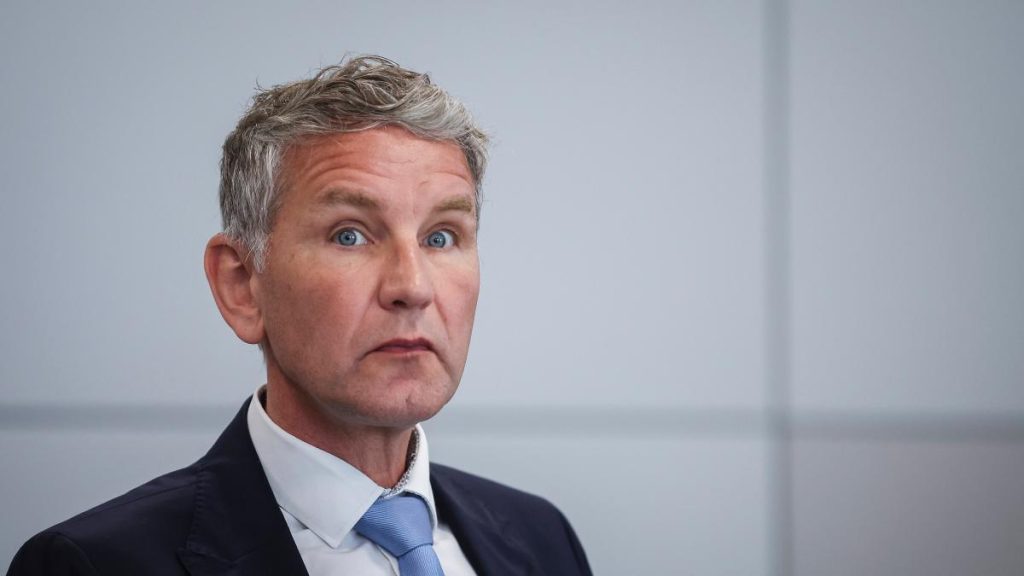Thuringia’s AfD leader Björn Höcke has announced that he will not be running for the party leadership at the upcoming federal party conference in Essen. He stated that he feels well represented by Alice Weidel and Tino Chrupalla and believes they should continue in their roles. Höcke cited the upcoming state elections in Thuringia, Saxony, and Brandenburg as the reason for his decision. He expressed his intentions to contribute to the conference’s discussions on party reform and the potential appointment of a new secretary-general.
Despite longstanding speculation surrounding Höcke’s potential candidacy for a leadership position within the AfD, he has consistently denied such ambitions. Nevertheless, his influence within the party is well-recognized, even following the formal dissolution of the far-right “wing” led by Höcke. The upcoming conference scheduled for June 29th and 30th will involve the election of a new board. However, various organizations have voiced their opposition to the event, and there is a dispute regarding the rental contract for the conference venue in Essen. The city council has requested a commitment from the AfD to refrain from using extremist or illegal rhetoric.
In Thuringia, Höcke’s AfD faction has been classified as proven far-right by the domestic intelligence agency since 2021 and is currently under surveillance. The decision to not run for the leadership position at the party conference in Essen underscores Höcke’s focus on the upcoming local elections and his satisfaction with the current leadership team. The AfD is facing challenges in maintaining a united front amidst internal divisions and external opposition to its far-right ideologies. Despite these obstacles, the party continues to engage in discussions surrounding its organizational structure and leadership dynamics.
Höcke’s decision not to pursue the party leadership position at the conference allows him to concentrate on his responsibilities in Thuringia and the upcoming elections in the region. The ongoing debate over the party’s direction and messaging reflects broader tensions within the far-right political landscape in Germany. The AfD’s role in shaping public discourse and policy remains a contentious issue, with various groups and individuals actively opposing their far-right agenda. The conference in Essen will be a crucial moment for the party, determining its future trajectory and leadership structure amid growing internal and external challenges.
As the AfD prepares for the conference in Essen, the absence of Höcke as a contender for the leadership position represents a strategic decision to focus on regional priorities and maintain continuity in the leadership team. The party’s interactions with the media, civil society, and political opponents will continue to shape its public image and influence its electoral prospects. The ongoing scrutiny of the AfD’s policies and rhetoric underscores the need for internal cohesion and strategic decision-making within the party. The dynamics at play within the AfD reflect broader trends in far-right politics in Germany and Europe, highlighting the complex interplay between ideological orientations and electoral strategies.


